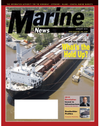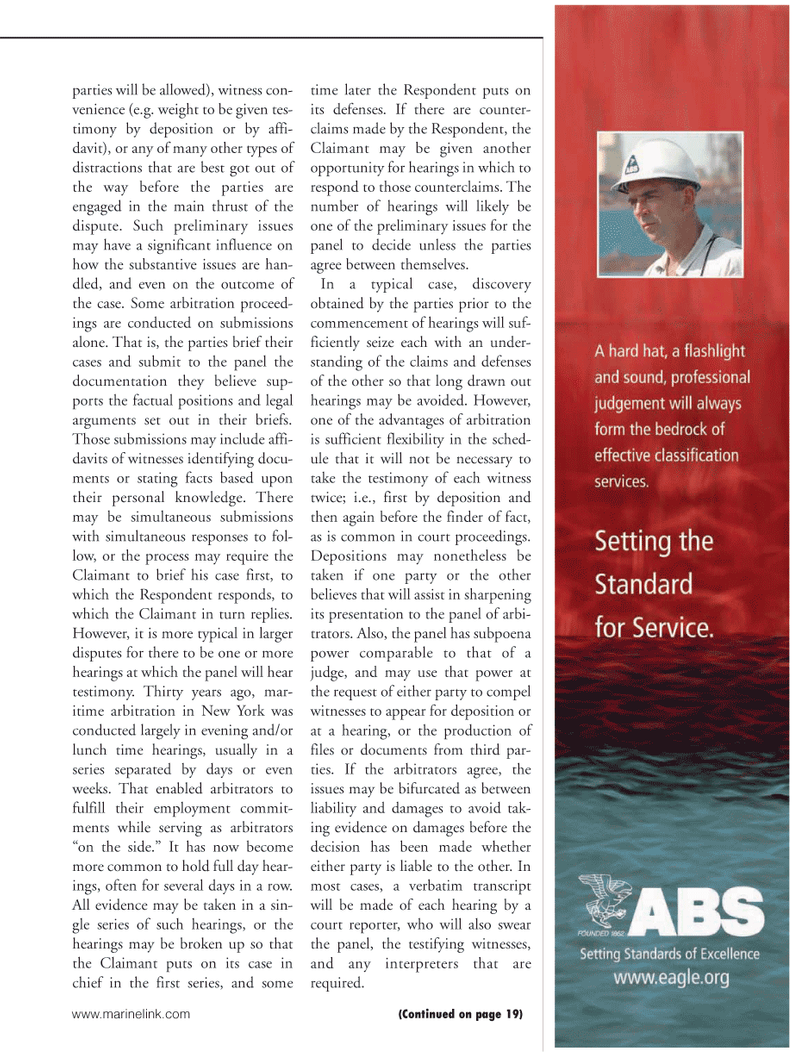
Page 17: of Marine News Magazine (January 2, 2010)
Read this page in Pdf, Flash or Html5 edition of January 2, 2010 Marine News Magazine
www.marinelink.com parties will be allowed), witness con- venience (e.g. weight to be given tes- timony by deposition or by affi- davit), or any of many other types of distractions that are best got out of the way before the parties are engaged in the main thrust of the dispute. Such preliminary issues may have a significant influence on how the substantive issues are han- dled, and even on the outcome of the case. Some arbitration proceed- ings are conducted on submissions alone. That is, the parties brief their cases and submit to the panel the documentation they believe sup- ports the factual positions and legal arguments set out in their briefs.
Those submissions may include affi- davits of witnesses identifying docu- ments or stating facts based upon their personal knowledge. There may be simultaneous submissions with simultaneous responses to fol- low, or the process may require the
Claimant to brief his case first, to which the Respondent responds, to which the Claimant in turn replies.
However, it is more typical in larger disputes for there to be one or more hearings at which the panel will hear testimony. Thirty years ago, mar- itime arbitration in New York was conducted largely in evening and/or lunch time hearings, usually in a series separated by days or even weeks. That enabled arbitrators to fulfill their employment commit- ments while serving as arbitrators “on the side.” It has now become more common to hold full day hear- ings, often for several days in a row.
All evidence may be taken in a sin- gle series of such hearings, or the hearings may be broken up so that the Claimant puts on its case in chief in the first series, and some time later the Respondent puts on its defenses. If there are counter- claims made by the Respondent, the
Claimant may be given another opportunity for hearings in which to respond to those counterclaims. The number of hearings will likely be one of the preliminary issues for the panel to decide unless the parties agree between themselves.
In a typical case, discovery obtained by the parties prior to the commencement of hearings will suf- ficiently seize each with an under- standing of the claims and defenses of the other so that long drawn out hearings may be avoided. However, one of the advantages of arbitration is sufficient flexibility in the sched- ule that it will not be necessary to take the testimony of each witness twice; i.e., first by deposition and then again before the finder of fact, as is common in court proceedings.
Depositions may nonetheless be taken if one party or the other believes that will assist in sharpening its presentation to the panel of arbi- trators. Also, the panel has subpoena power comparable to that of a judge, and may use that power at the request of either party to compel witnesses to appear for deposition or at a hearing, or the production of files or documents from third par- ties. If the arbitrators agree, the issues may be bifurcated as between liability and damages to avoid tak- ing evidence on damages before the decision has been made whether either party is liable to the other. In most cases, a verbatim transcript will be made of each hearing by a court reporter, who will also swear the panel, the testifying witnesses, and any interpreters that are required. (Continued on page 19)

 16
16

 18
18
